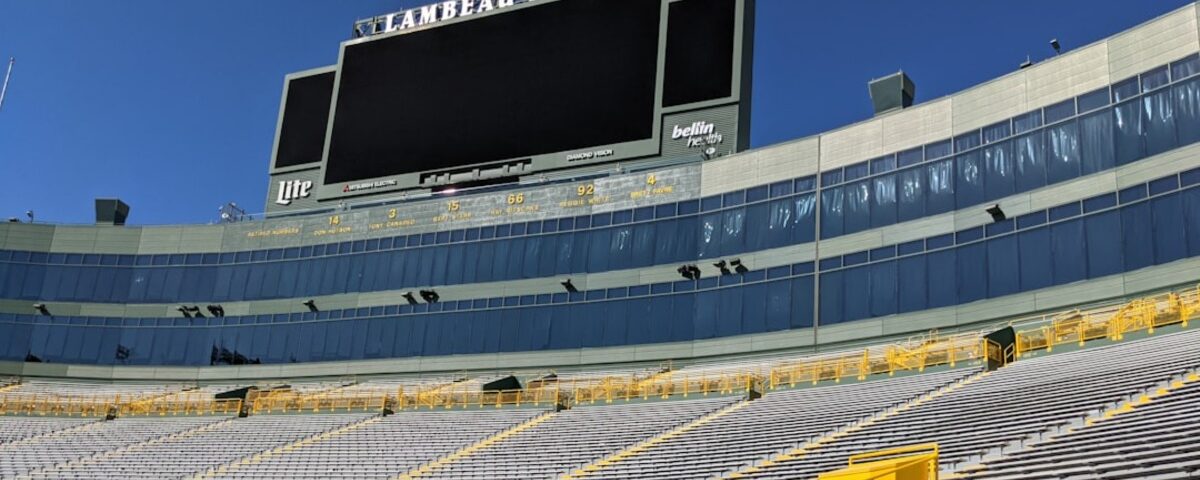Introduction
The NFL Draft has evolved significantly from its humble beginnings as a single-location event in New York City, transforming into a traveling spectacle that captures the attention of football fans across the United States. This evolution reflects the growing popularity of the NFL and its desire to engage with fans in diverse locations. In a groundbreaking announcement, Green Bay, Wisconsin, has been chosen to host the 2025 NFL Draft. The selection of Green Bay, with its small market size, represents a significant departure from the norm and underscores the NFL’s commitment to celebrating football’s rich history and its loyal fan bases, regardless of their geographical size.
Overview of the NFL Draft’s Evolution
The journey of the NFL Draft from a relatively low-key event in New York City to its current status as a touring behemoth across the United States is a testament to the league’s innovative spirit and its quest to connect with fans in every corner of the country. This shift towards a rotating venue model has not only democratized the draft experience, allowing fans from various cities an opportunity to partake in the festivities, but it has also spotlighted the unique cultures and traditions of each host city. The announcement that Green Bay, Wisconsin, will host the 2025 NFL Draft marks a pivotal moment in this evolution, highlighting the NFL’s willingness to embrace and celebrate the contributions of smaller markets to the fabric of American football.
Green Bay’s Preparation and Historical Significance
For years, Green Bay has been laying the groundwork to bring the NFL Draft to its doorstep, spearheaded by the development of “Titletown” adjacent to the iconic Lambeau Field. This ambitious project reflects the city’s dedication to enhancing its infrastructure and entertainment offerings, making it a compelling destination for major events. Green Bay’s storied history with the Packers, the NFL’s only community-owned team, imbues the city with a cultural and historical significance unmatched by any other. The Packers’ deep roots in the league’s history, coupled with their unique ownership model, make Green Bay a symbolic choice for hosting the draft, celebrating the communal spirit at the heart of American football.
The Significance of Hosting in a Small Market
The decision to host the 2025 NFL Draft in Green Bay, the smallest city ever selected for this honor, is a bold statement about the league’s values and its vision for the future. With a population of just over 106,000, Green Bay’s selection challenges conventional wisdom about the requirements for a host city, emphasizing the importance of tradition, fan engagement, and football’s impact on community identity. This move could redefine the perceived benefits and challenges of hosting the draft, providing valuable insights into the potential of smaller markets to successfully manage large-scale events and reap the economic and social rewards.
The Logistics and Planning Challenges
Hosting the NFL Draft in a city the size of Green Bay presents a unique set of logistical challenges, from accommodating the influx of visitors to ensuring the city’s infrastructure can handle the event’s demands. The selection of venues, particularly the consideration of “Titletown” and Lambeau Field, will be critical in showcasing Green Bay’s charm and capacity for hosting such a significant event. These decisions will require careful planning and collaboration between the NFL, the city, and local stakeholders to create an unforgettable experience for attendees and a smooth operational execution.
Future Host Cities and the Selection Process
The journey to selecting Green Bay for the 2025 NFL Draft shines a light on the NFL’s host city selection process, a method that prioritizes a city’s narrative, its historical and cultural significance to football, and its vision for the event over traditional metrics like city size or economic capacity. This approach has allowed the NFL to diversify the draft’s locations, moving from large metropolises to smaller cities with rich football heritages. The list of previous host cities since New York reflects the league’s commitment to spreading the draft’s reach, celebrating the sport’s nationwide appeal.
Conclusion
The NFL Draft’s move to Green Bay in 2025 is more than just a logistical achievement; it’s a symbolic gesture that honors the heartland of American football and its passionate fans. As Green Bay prepares to welcome the nation, the event promises to leave a lasting impact on the city’s development, its place in NFL history, and the way football fans nationwide perceive the draft. The anticipation for how Green Bay will execute and add to the draft’s legacy is palpable, with the potential to set a new precedent for future host cities, proving that in the world of the NFL, passion, tradition, and community spirit reign supreme.


